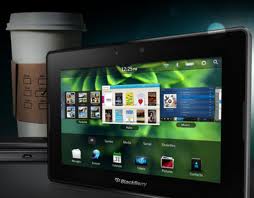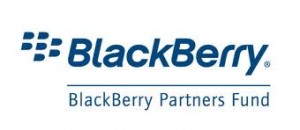Research in Motion has revealed in its quarterly earnings call that revenue for its current quarter was down 19%, $4.2 billion compared to $5.2 billion in the previous quarter, for a net loss of $125 million. The results that have resulted in a management shift and a change on corporate focus. For the quarter the company shipped approximately 11.1 million BlackBerry phones and 500,000 tablets.
Out is former co-CEO Jim Balsille who has resigned from the board of directors. Also gone are COO of Global Operations Jim Rowan and CTO David Yach. This coincides with a much stronger emphasis on developing and delivering products focused on the needs of the coporate IT department and the corporate user.
So security, reliability, manageability and messaging services will be the keywords going forward as it seeks to leverage what it views are corporate strengths-enterprise services and devices that handle them. On the flip side areas such as consumer oriented capabilities such as media consumption will be placed on a backburner.
The key to all of this, and for the company to successfully rebound, will hinge on the BlackBerry 10 launch, executives said. The release is due at some point later this year and will finally give the company a high end smartphone to compete with the Android and Apple devices that are already so prevalent. It has been working hard to develop a strong app ecosystem as well.
Nano-SIM standard vote delayed
The European Telecommunications Standards Institute (ETSI) after dueling proposals caused a rift. On one side is Apple, and select allies, and on the other is Nokia, Research in Motion and Motorola Mobility. TechWorld reports that a vote was scheduled last week but was postponed for at least a month due to strong differences between the two camps. The purpose is to develop a new, smaller form factor SIM card, officially called 4FF or fourth form factor.
Slow Tablet sales not Google’s fault?
An interesting piece from the good folks at The Motley Fool, or at least from Evan Niu, ponders why Google has not been able to transfer its tremendous success with its Android operating system in the smartphone market to the Tablet market. There are a variety of reasons mentioned but much of it boils down to the fact that many of the apps are simply slightly altered smartphone apps. It then ponders how Microsoft will do when it makes its big splash with its Windows 8 OS.
Google to sell self-labeled tablets?
An interesting sidebar to the while Android tablets are not doing well is the current rumors that not only will Google sell its own line of tablets, but will do so from its own store. Originally reported by the Wall Street Journal, the story is that Google will turn to partners, possibly Samsung and Asus to build tablets that Google will then sell under its own label.
In addition to selling under its own label it will also be selling them direct, much like Amazon does with its Kindle offerings and Apple with its iTunes store, among others. It is also expected to subsidize the cost of the tablet, a move that could alienate some of its hardware OEMs.
Google has already gone down the co-branding path once with HTC Nexus One a few years ago. Know anybody that has one? Well Google execs have said that the company plans to double down on Android tablets this year so it will be an interesting time. According to eWeek Google admitted that it has 300 million Android smartphones but only 12 million tablets in customers’ hands.
EU antitrust about to step in on Apple/Motorola Mobility/Microsoft patent issue?
Reuters is reporting that the head of the EU’s antitrust agency said that the group is considering opening an investigation into the patent disputes that are ongoing between Apple, Microsoft and Motorola Mobility.
While the EU has given the Motorola/Google $12.5 billion purchase a thumbs up it also said that it retained the right to investigate ongoing issues including the patent problems that have been a source of considerable litigation.
The group is already investigating if Samsung’s tactics in this area against Apple are a violation of EU antitrust rules. Google has said that it will offer Motorola patents on fair and reasonable terms once the deal is completed.
More Money = Less Entertainment apps on phones
The research firm The Luxury Group has done a study that shows that the wealthier an owner of a smartphone is the less likely to use it to play games or send tweets. It studied app usage among wealthy consumers, ones with income over $150,000.
The news is not really that startling as the users that fell into this area tended to have families and demanding jobs and tended to select apps that met those needs rather than ones for personal entertainment. Still it is sad on which side of this discussion I fall.
Hi-Tech a boon to local bookies
Automation has led to efficiency in so many areas since the days of Henry Ford, and now it looks like local bookies are getting in on the action, according to the New York Times. Rather than stand on street corners singing ‘Luck be a lady tonight’ all they need do these day is set up a web site, post odds and then direct the locals to it to place bets. Must make it real easy at tax time to see what you owe the government, and yes I know that is not where the song was sung in the movie.












